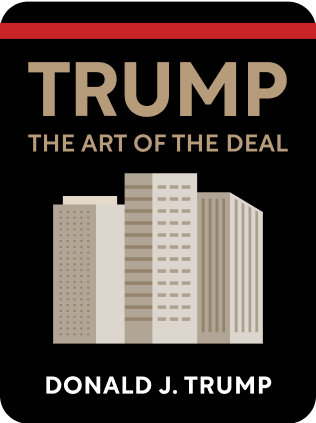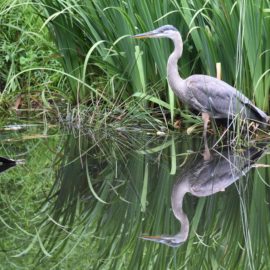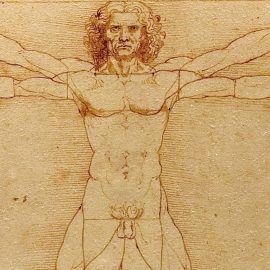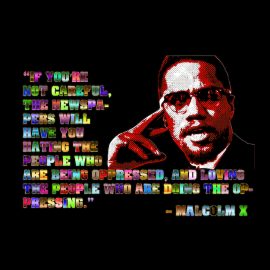

This article is an excerpt from the Shortform book guide to "The Art of the Deal" by Donald J. Trump. Shortform has the world's best summaries and analyses of books you should be reading.
Like this article? Sign up for a free trial here .
Why did Donald Trump buy a USFL team? And why did he file an anti-trust case against the NFL? What was the outcome?
In a departure from real estate, Trump bought USFL (the United States Football League), despite the fact that USFL was struggling. He felt he could resolve the USFL’s major challenge. The USFL had its season in the spring, but Trump didn’t think TV networks would get on board for spring football.
Read about Donald Trump’s USFL deal and what happened in the aftermath.
Donald Trump and the USFL
In getting involved with the USFL, Trump went against his guiding principle to prepare for the worst and be conservative in investments. Three factors influenced Trump to take the risk:
- He loved football
- Buying a USFL team was significantly cheaper than buying an NFL team
- He liked the prospect of challenging the NFL’s monopoly on professional football
In order to draw fans, get press, and sell tickets, the USFL had to offer exciting football games with talented players.
Trump and other USFL team owners poached several star NFL players for a boost of talent and attention. But according to Trump, USFL needed to prioritize recruiting the best college players.
Trump’s team had Herschel Walker, a Heisman winner who later played for the Dallas Cowboys and several other NFL teams. Trump was also after Boston College quarterback Doug Flutie, who was up for a Heisman Trophy and got a lot of media attention after throwing a 50-yard touchdown (the “Hail Flutie”) during his final college game. Not only was Flutie likely to help the Generals win more games, but he’d also help create buzz around the team and the league and drive up ticket sales.
Trump signed Flutie to the Generals for more than $1 million and personally guaranteed his five-year contract. Trump typically makes a point not to put himself on the line financially, but in this case, he felt the uncertainty of the USFL’s future and the importance of getting Flutie merited it.
Flutie’s first game with the Generals was broadcast on ABC and had more than twice the previous season’s average ratings. (Flutie later played for the NFL as well as the Canadian Football League.)
The Backup Plan
Trump was convinced that if the USFL moved its season to the fall, one of the three major television networks—ABC, NBC, or CBS—would agree to a contract to broadcast the league’s games. Televised games on a major network would make the USFL more competitive with the NFL, and bring in more viewers and money.
If no network agreed to air the USFL, Trump had a backup plan: He felt it would be evidence for an antitrust case against the NFL because the NFL’s season was in the fall and it would have a monopoly on broadcasting. If the court decision was in favour of the USFl, Trump could use the money from the settlement or damages payment to make necessary improvements.
However, not all USFL team owners were willing or financially able to fight. Many owners were hesitant when Trump suggested a vote on moving the league’s season, but they eventually voted and agreed to move the season to fall.
The USFL Filed an Antitrust Case Against the NFL
The USFL had been in talks with CBS and NBC, but conversations stalled as soon as the league announced its move to the fall. Trump assumed the NFL was pressuring the networks not to create competition by airing the USFL in the fall.
Trump and other USFL owners agreed to file an antitrust case against the NFL. The suit proposed that the NFL could have contracts with only two of the three networks and requested $1.32 billion in damages.
Trump’s instincts were right about the case: The jury determined that the NFL’s contracts with all three networks violated antitrust laws. However, the jury awarded the USFL only one dollar in damages. The NFL essentially got a slap on the wrist, and the USFL didn’t get the money it hoped would revive its league.
The USFL team owners agreed to appeal the ruling and suspend the season in the meantime; the appeal was still in progress at the time of this book’s publication. (Shortform note: The USFL ultimately lost its appeal.)

———End of Preview———
Like what you just read? Read the rest of the world's best book summary and analysis of Donald J. Trump's "The Art of the Deal" at Shortform .
Here's what you'll find in our full The Art of the Deal summary :
- What Donald Trump says about his early life before the White House
- The 11 principles Trump says guided his business decisions
- How the West Side rail yards project proved to be a challenge for Trump






